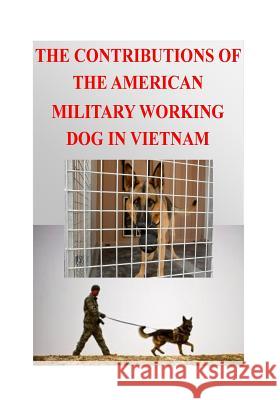The Contributions of the American Military Working Dog in Vietnam » książka
The Contributions of the American Military Working Dog in Vietnam
ISBN-13: 9781511581455 / Angielski / Miękka / 2015 / 118 str.
This study investigates the contributions of the military working dogs in Vietnam to determine their significance to the United States' war effort. There is limited written history concerning the use of the military working dogs in Vietnam. The methods and procedures employed in this study data relied extensively on personal military after action reports and histories (written and oral) to compile a historical account of the military working dog in Vietnam. The study found that when correctly employed, these animals made significant contributions to the United States' war effort in terms of the saving of lives and in the protection of military resources. However, these contributions could not be quantified; therefore, assumptions were made as to the effectiveness of the animals. Despite their effectiveness, the scout, tracker, and mine/tunnel dog programs were disbanded at the conclusion of the Vietnam War. This practice of disbanding military working dog programs at the conclusion of conflict is one that has been practiced since World War II. Each subsequent war has necessitated the rebuilding of military working dog programs. Today, only the sentry dogs are still active, having been joined by the relatively new narcotic detection dogs. Future conflicts may necessitate rebuilding the scout, tracker, and mine/tunnel dog programs.












